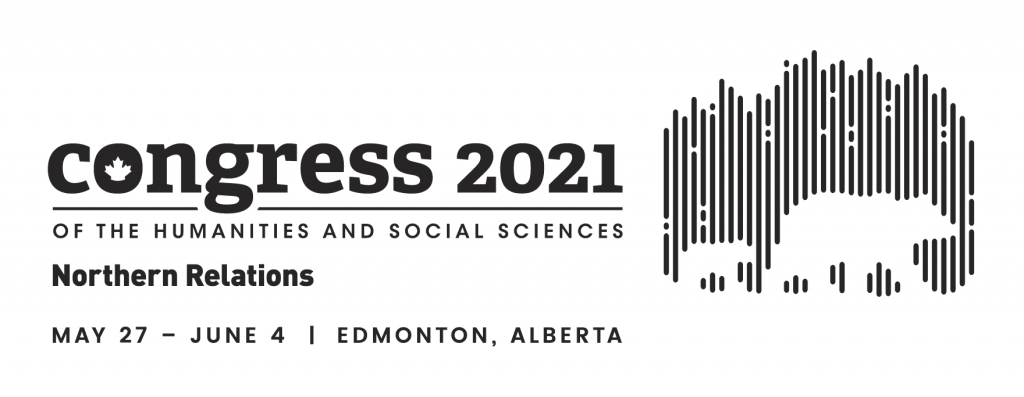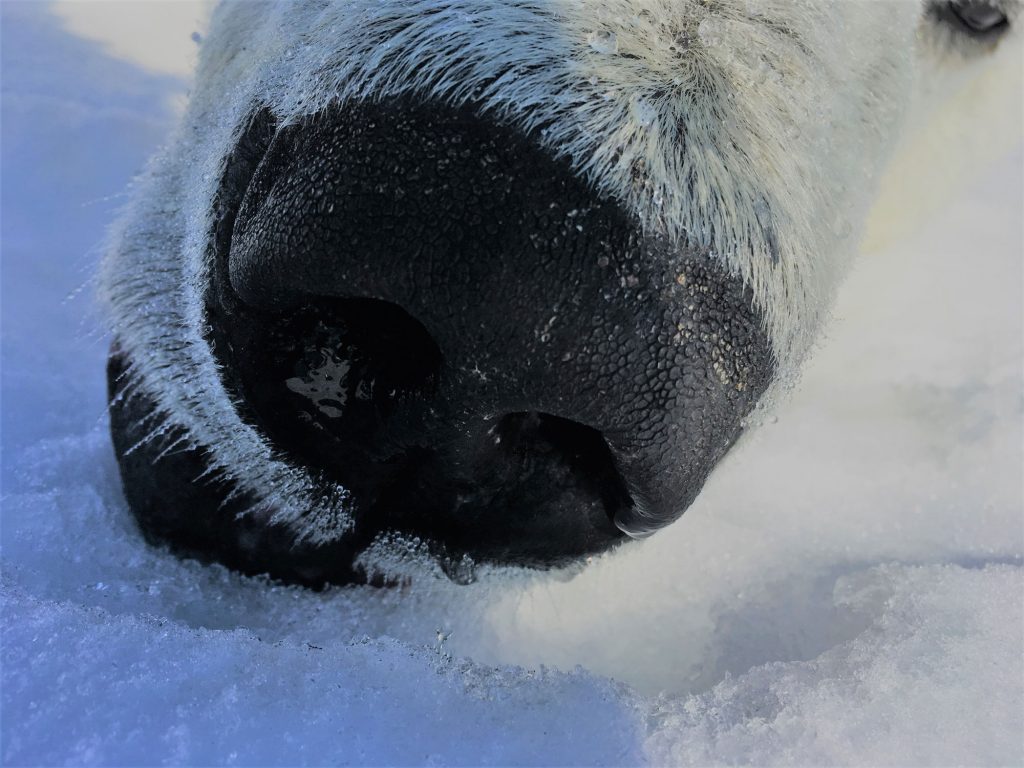A Cold Breath
A Cold Breath
Award: Semifinalist, Images of Research Competition 2018
| Submitted by: | Nicole Boucher |
| Faculty/Department: | Faculty of Science, Department of Biological Science |
| Place of creation: | Churchill, Manitoba |
Sea ice is declining in the Arctic, resulting in the loss of valuable habitat that polar bears need to hunt seals. Polar bears feed on seals when the sea ice is formed and enter a fasting period after the sea ice breaks up in the summer. When sea ice breaks up earlier, bears may seek out other food sources, to avoid starvation. In my master’s program, I am studying how habitat loss is affecting diet in polar bears. I am quantifying diet using stable isotope analyses on guard hairs. The ratios of stable isotopes, atoms with different numbers of neutrons, can indicate foraging habitat, food source and trophic level. To collect fur samples, polar bears are live-captured from helicopter, and fur is shaved from near their tail. Monitoring diet in apex predators is important, as it may provide insight into how ecosystem dynamics are changing in the Arctic.


